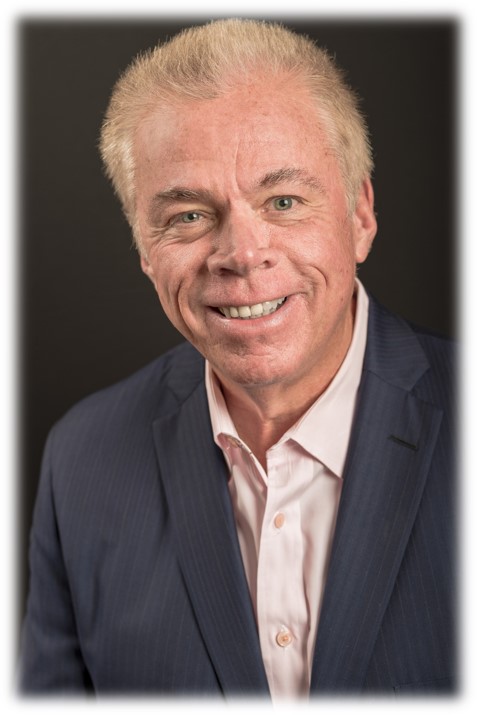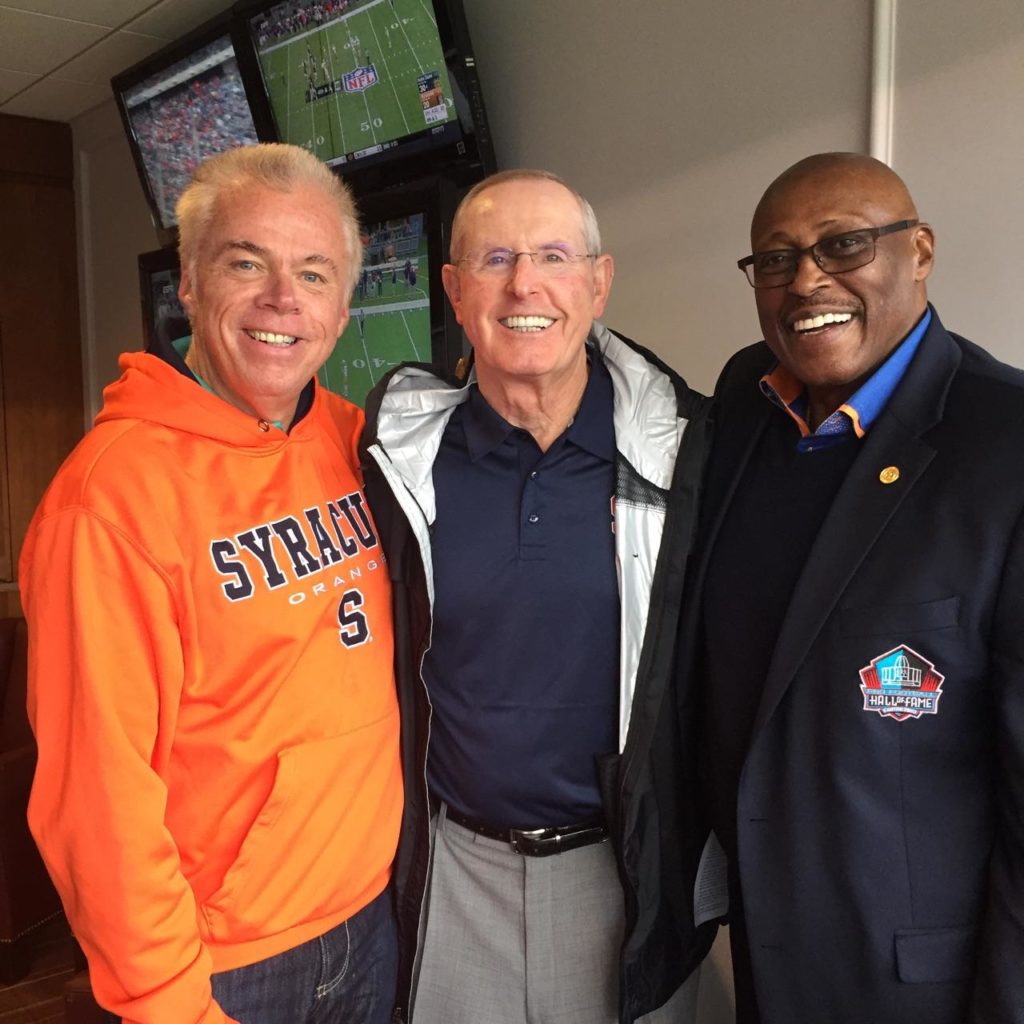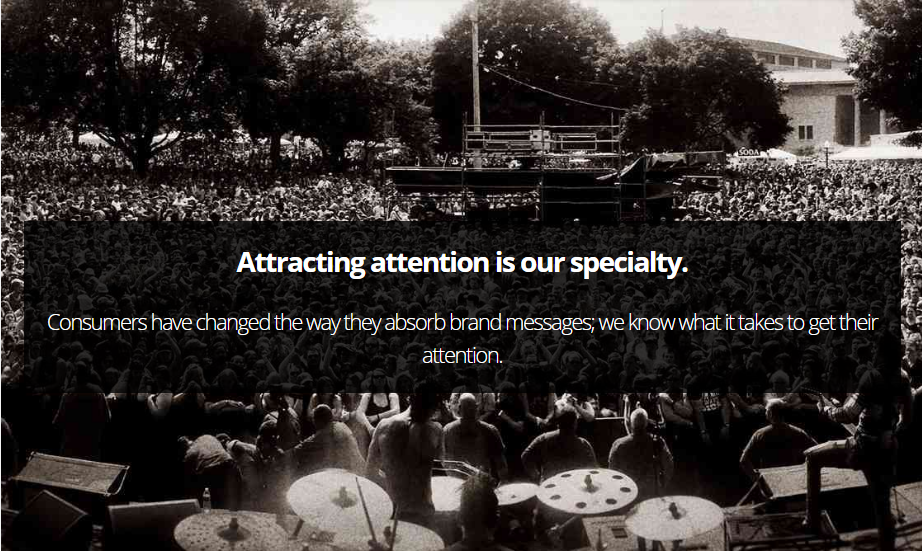I’ve known Ed Levine from back in the day when he was a rock ‘n roll programmer in upstate New York. Ed was part of the Infinity Broadcasting cadre of P.D.s that included Andy Bloom, Oedipus, Mark Chernoff, Tim Sabean, Ron Nenni, Buzz Knight, and others. He was programming WJFK in Washington, D.C., when Howard Stern was rolling out his historic syndication juggernaut, and clearly learned many lessons  (as did we all) from CEO Mel Karmazin.
(as did we all) from CEO Mel Karmazin.
In 1990, Ed switched gears and turned his focus to ownership in the market area he knew all too well: Syracuse and Utica/Rome, New York. In the years since, Galaxy Communications has become a dominant player in both markets, both in ratings and revenue.
Like a long line of former programmers who have gone on to successfully run radio companies – from Bob Pittman to Jarl Mohn to Dan Mason – Ed is a proud member of that fraternity. But his “secret sauce” is that he’s done it by focusing on a local region that he knows like the back of his hand.
Ed and his team have done it by immersing themselves in these communities – a testament to textbook local radio. I visited Ed in Syracuse a number of years ago, and as we were strolling through the downtown area, it was like walking with Andy Taylor in Mayberry. Ed is one of the best known and most respected people in town.
Whether it’s Syracuse University sports or local events like “The Taste of Syracuse,” the Galaxy team is thoroughly ensconced within the communities they serve. In an era when many used consolidation to build massive companies that cover the entire U.S., Ed hunkered down in his corner of upstate New York, serving his communities wisely. And that’s why he earns the honor of being one of Radio’s Most Innovative. You don’t read about Ed Levine in the industry trades this week, but in many ways, he’s the poster boy for local radio done right.
JM: You come out of programming. Like many of the great programmers who went on to run successful media companies, do you think that starting as a content person gave you an edge?
EL: I think that my background in product influences all of my decisions. For instance, we just launched a brand new Variety Hits format in Utica that we call “TONY.” Not only is the music different than anything else in the market, but so is how we handle commercial breaks. We will only break once an hour with a 5-unit maximum after our initial 10,000 songs in a row.
We are also only selling the station in six and 12 month schedules. We are attempting to deal with the most discussed complaints about local radio in that’s it’s excessively repetitious with too many commercials. Well, here you go…if it works, we may be helping to reinvent local radio.
JM: You’re not trying to build a company comprised of several hundred stations in 75 markets. So far, it’s just been Syracuse and Utica/Rome. Talk about regional domination and why it’s worked for you.
EL: Inherently a radio station is a living, breathing organism. If you own hundreds of radio stations, you must install systems that are scalable. I’m just not sure that radio was intended to be an industry with companies owning hundreds of radio stations. My preference is to know all of my co-workers and be able to interact with them on a regular basis. Staying regionalized allows that to happen and keeps my travel down to a somewhat manageable level.
JM: You compete against the biggest players in radio. How has that impacted your strategy?
EL: Being small was a distinct negative 15-20 years ago as many employees believed in the 1990s consolidation myth that radio would get dramatically more of the advertising pie with consolidation, which would increase salaries and enhance everyone’s career. Clearly that did not occur. Local ownership that cares about the markets they are in and the people that work with them has become very “fashionable.” We have become a desirable destination to work at and I’m proud of that.
JM: Galaxy is a testament to being a local company. How can that model work in other markets for small, independent broadcasters?
EL: Small, independent radio often was a euphemism for “irrelevant.” Galaxy is number two in revenue in both of the markets we compete in because of the quality of our people and our stations. It’s a commitment to not just being “local” but being “smart” and “strategic” at the same time. “Local” may get you in the door but you have to have a real financial structure in place, backing quality stations staffed by real professionals to make it all work.

JM: On the Galaxy Communications website, radio is one of several marketing tools featured – along with events, sports marketing and digital. What’s the strategy?
EL: The strategy is pretty simple. We use LOCAL radio to drive LOCAL people to LOCAL events. There’s that key word again…LOCAL. If it’s important to our listeners, we are on it, and sports is an enormous part of that. As the flagship of Syracuse University Athletics, as well as the Syracuse Crunch, Utica Comets, Utica College and all of the NFL and MLB teams in New York, our commitment is huge. We live it every day.
JM: You have been especially connected to local events. Why does that work for Galaxy, and how effectively have you been able to monetize it?
EL: Over the years I grew weary of being “media sponsors” of an event which meant we would get a $2,000 spot buy and the promoters would hang a crooked banner off a stage somewhere. So we eliminated the middle man and in many cases became the actual promoter ourselves. Event marketing now is responsible for over a third of our cash flow and that number is trending up. Now we have come up with a model that helps other radio and TV broadcasters begin to monetize events with no risk.
Email me at [email protected] for more information.
JM: You just bought two new events. Talk about them and the reason behind this expansion.
EL: I was meeting with my friends at Cox Media Long Island to discuss some upcoming joint ventures. They mentioned that there was a fellow who had two very strong events on Long Island that was looking to do something else with his life. One thing led to another and we bought the company.
The entrepreneur who sold it to us, Eric Bell, is staying on with us and helping us expand into other markets like Philadelphia in 2017.

JM: How do you see the health of the radio business? How essential is it to move past spot advertising?
EL: Radio has suffered from the worst lack of leadership of just about any other major industry. Our wonderful business has been overrun over the past two decades by MBAs masquerading as CEOs that didn’t give a damn about the long-term effects their behavior was having on the entire industry. We are paying the price for some of those actions now, but it’s my belief that the pendulum has begun to swing back to authentic broadcasters.
JM: Your family is involved in the business. How has that helped grow the company?
EL: You can’t accomplish what has happened at Galaxy without a tremendously supportive wife, and I have been blessed to have that in Pam for the past 35 years. She also happens to be an amazing marketing person and the most organized human being I know. So when we bought Taste of Syracuse nine years ago from the entrepreneur who founded it, she agreed to run that one event, which at the time was a “part-time” job. Now 30 events later, with a major expansion in the works around the country, she is an integral part of everything.
My daughter, Lauren also went to America’s #1 communication school (Newhouse at SU) and is a very prolific blogger, podcaster, and writer as well as our Brand Manager for WUMX. She named the company “Galaxy” and our first station WKLL was named for her. So you could say she’s pretty much “all in.”

JM: Your website’s main position states “Attracting attention is our specialty.” How did you arrive at that strategy and why is it working for you?
EL: The game has changed. Getting a spot order and having cocktails at lunch works on “Mad Men” but not for real marketers. Consumers are bombarded by advertising all day, every day. Business owners are no longer content to play it safe as they are demanding real ROIs. Our background in creating interesting campaigns that get real results has never been more important than now. With our local events — our local sports marketing and all of our digital assets — we really do create 360 degree campaigns.
JM: I’ve walked down the street with you in Syracuse. Everyone knows you – and you know everyone. How have relationships in upstate New York helped you build the company?
EL: Credibility and trust is built over time. There are no short cuts. If you do the right thing consistently and keep throwing the ball down the field, good things eventually do happen.
My commitment to these stations and these communities is total. It’s not lip service. I live it and have lived it for over 25 years. It has been and continues to be a great life. These are relatively small markets, but being a big fish in a little pond really is a good thing. You are able to directly impact communities like these in a positive manner by doing what I have loved to do since I was 18 — being a radio broadcaster. That’s pretty cool.
INNOVATION QUOTE OF THE WEEK:
“Get closer to your customers. So close that you tell them what they need well before they realize it themselves.”
Steve Jobs
More of Radio’s Most Innovative
- What To Do If Your Radio Station Goes Through A Midlife Crisis - April 25, 2025
- A 2020 Lesson?It Could All Be Gone In A Flash - April 24, 2025
- How AI Can Give Radio Personalities More…PERSONALITY - April 23, 2025





Leave a Reply